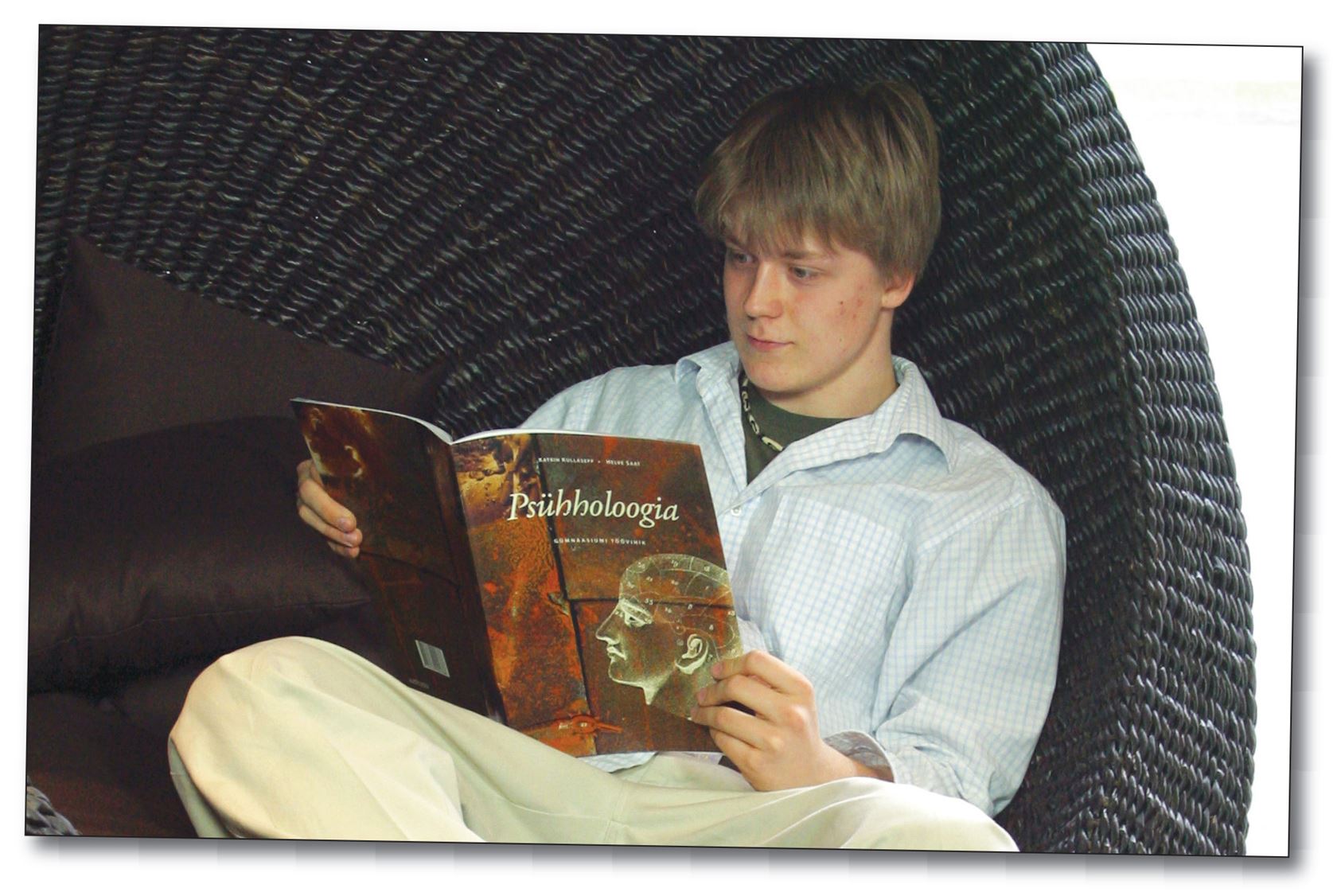Warm-up
Listen to Tracy as she reads a letter from her friend Daniele.
- Is your home like Daniele’s? How is it similar or different?
- Do you think Daniele’s experience is extraordinary?
- How much does your childhood home influence your future life?
Pre-reading
- Read the first paragraph of the text below. What do these first two sentences suggest? Why?
- How would you describe the way you feel when something is really worrying you?
- Read the text and answer the questions that follow.
Reading
Back to school and the rest of my life

I went back to school the next day, but I didn’t speak to anyone, didn’t listen to anything, didn’t pick up a pen the whole day. I just sat there, with things churning over and over in my head and in my stomach. Some things I thought were:
I’m going back to Hastings.
It didn’t make any difference that I’d been to Hastings before. I could go anywhere. Any seaside town.
What is a good name for a baby? (And then a lot of baby names, like Bucky, Sandro, Rune, Pierre-Luc. I just basically went through a list of cool skaters in my head.) One thing I knew, and one thing I’d learned from the future: Roof was a rubbish name. Nothing would ever change my mind about that. You know how in The Terminator they’re trying to protect the unborn baby who will one day go on to save the world? Well my mission was to prevent my unborn baby from being called Roof.
Will Alicia’s mum and dad actually attempt to attack me? Physically? It wasn’t only my fault.
My mum. I didn’t really have any thoughts or questions, so much. I just kept thinking of what she’d look like when I told her. When she said that thing about her heart breaking the night before, it made me sad, because I knew that I was going to break her heart too. That meant the whole of our family would have broken her heart.
Did I have to go and watch the baby being born, because I was the dad? I didn’t want to. I’d seen a baby being born on TV and it was terrible. Would Alicia make those noises? Could I ask her not to?
What was I going to do to make some money? Would all our parents pay for everything?
And when I got whizzed into the future, was that really the future? Was I going to live with Alicia at her mum and dad’s house? Was I going to share a bed with her?
None of it went anywhere, but I couldn’t get rid of it either. It just stayed there. I was like one of those guys who work at the funfairs – I hopped off one teacup, jumped on to the next one, spun that round and made people (in other words me) frightened, and moved on. At lunchtime I went up to the chip shop with people from my class, but I didn’t eat anything. I couldn’t. I felt like I’d never eat anything again. Or not until Pierre-Luc was born, and Alicia had stopped making that noise.
As I walked out of school at the end of the day, I could see Alicia waiting for me on the other side of the road. I started to feel annoyed that she didn’t trust me, but seeing as I’d disappeared on her once, you could hardly blame her. And anyway, she was pleased to see me, and she smiled, and I remembered why we had gone out in the first place. All that seemed like a long time ago now, though.
(from the novel SLAM by Nick Hornby)
Comprehension
Exam tips – multiple-choice tasks
- Read for gist.
- Read the questions or sentence stems, but not the answers given.
- Read the text carefully and find the relevant part of the text, try to answer the question or finish the sentence.
- Only then read the multiple choice options and choose the one that fits best; make sure no other answer is appropriate.
- Remember – options that sound a lot like the text are often wrong, you need to interpret the language.
- Some options may be generally true, but they do not answer the question or are not true according to the text.
- Some options are nearly correct, apart from one word (e.g. never/always).
1. Hastings is
- a small rural town
- a seaside town
- a metropolis
2. Sam wants to
- call the baby Roof
- call the baby Alicia
- call the baby Pierre-Luc
3. Alicia’s and Sam’s parents
- will attack Sam physically
- may be heartbroken
- promised to pay for everything
4. Sam
- wanted to work at the funfair
- didn’t feel like eating
- wanted to frighten people
5. The “it” in the sentence “None of it went anywhere, but I couldn’t get rid of it either” refers to
- the unborn baby
- the funfair
- the problem
6. Alicia ... Sam.
- felt annoyed by
- was glad to see
- was anxious about seeing
7. Sam had the feeling that Alicia didn’t trust him because
- he had avoided her before
- he was an untrustworthy person
- he had yelled at her once
8. Alicia’s distrust
- made Sam slightly angry and impatient
- was not justified
- was something Sam had blamed her for
Vocabulary practice
- v to pass from view
- adj not yet born, still to come in the future
- adj disturbed or irritated especially by repeated acts
- v to produce, proceed with or experience violent motion or agitation
- v to keep from happening or existing
- v to make an effort to do, accomplish, solve or effect
- n a commercially operated park having various devices for entertainment
- v to fly or move swiftly
- v to revolve rapidly
- n a significant change in or effect on a situation
Discussion
1. Carry out the web quest as described below
WebQuest about SLAM by Nick Hornby
Introduction: This is a web quest where you have to find out as much as possible about the novel SLAM and its author Nick Hornby.
Task: If you have not already read SLAM, then more than likely all you know about it is what has been presented in this textbook. The internet is full of information about the book and its author. Your task is to find out as much as you can about the characters in the book, the story, issues the book deals with, the author, other books he has written, what he says about SLAM, what he says about anything else related to the book.
Process:
Work in pairs or small groups.
Read through the extract in the textbook again.
What information can you find from the extract? Write out names and other information you find useful.
What would you like to know about the rest of the novel? About the author?
Open a web browser and search key words like “Slam” and “Nick Hornby”.
Research sites you are offered – take notes and mark down the web addresses.
Choose one or two sites you find the most interesting and useful and read the material more carefully.
Decide as a group or with your partner what you would like to tell the rest of the class.
Prepare a talk for the class – you may use PowerPoint to support your talk (around 5 minutes).
Divide up the presentation between yourselves and make sure well in advance, who is doing what.
Practise your talk.
2. Do you know anybody who has been in a tight spot like Sam? How do young people deal with their problems? Who do you usually turn to if you need help? Is it possible to avoid serious problems in your life?

Monologue
Prepare to talk for 2 minutes about one of the following topics:
- Some people say that children should be given a chance to solve their problems on their own. Why do you think they say this? Do you agree? Give reasons.
- Some people say that parents should make all their children’s decisions until the children are 18. Why do you think they say this? Do you agree? Give reasons.
